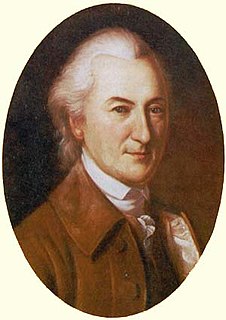A Quote by Henry David Thoreau
We should be blessed if we lived in the present always, and took advantage of every accident that befell us, like the grass which confesses the influence of the slightest dew that falls on it; and did not spend our time in atoning for the neglect of past opportunities, which we call doing our duty.
Related Quotes
I would say to bishops, and to all men in authority, we should have an interest in carrying on this work. We should labor to get the Spirit of God. It is our right, our privilege, and our duty to call upon the Lord, that the vision of our mind may be opened, so that we may see and understand the day and age in which we are living. It is your privilege, and mine too, to know the mind and will of the Lord concerning our duties, and if we fail to seek after this, we neglect to magnify our calling.
You can make the argument that there's no such thing as the past. Nobody lived in the past. They lived in the present. It is their present, not our present, and they don't know how it's going to come out. They weren't just like we are because they lived in that very different time. You can't understand them if you don't understand how they perceived reality.
Men spend their lives in anticipations,—in determining to be vastly happy at some period when they have time. But the present time has one advantage over every other—it is our own. Past opportunities are gone, future have not come. We may lay in a stock of pleasures, as we would lay in a stock of wine; but if we defer the tasting of them too long, we shall find that both are soured by age.
There is, however, no advantage in reflections on the past further than may be of service to the present. For the future we must provide by maintaining what the present gives us and redoubling our efforts; it is hereditary to us to win virtue as the fruit of labour, and you must not change the habit, even though you should have a slight advantage in wealth and resources; for it is not right that what was won in want should be lost in plenty.
What happens is most of us are so busy in our lives with our families and our vocation which we should be, but we tend not to look at what I call these parallel interests, and they develop along the way. And sometimes one can say, well, you know, why should I grow my own garden and spend all that time when I can buy carrots cheaper at the supermarket and just put aside that kind of an interest.
Why cry about missed opportunities when you have the ability to smile at opportunities lived? The past has created who you are NOW, where we learn and grow from the past, never resting upon previous achievements or allowing past failure to paralyze us in our current endeavor. All that was has created us to be the best we currently are for our greatest hour is about to arise!
The Evangelistic Harvest is always urgent. The destiny of men and of nations is always being decided. Every generation is strategic. We are not responsible for the past generation, and we cannot bear the full responsibility for the next one; but we do have our generation. God will hold us responsible as to how well we fulfill our responsibilities to this age and take advantage of our opportunities.
The gist of the matter is this: Every impression that comes in from without, be it a sentence which we hear, an object of vision, or an effluvium which assails our nose, no sooner enters our consciousness than it is drafted off in some determinate direction or other, making connection with the other materials already there, and finally producing what we call our reaction. The particular connections it strikes into are determined by our past experiences and the 'associations' of the present sort of impression with them.

































